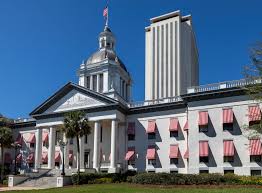A Day of Reckoning
Florida communities are fighting for their rights.
8/20/2025


Our day of reckoning has arrived. Across Florida, local governments are pushing ahead with changes to their growth plans despite warnings from major opponents that their plans will violate a new pro-developer state law, SB 180, which restricts city and county authorities' ability to impose new land use or development rules. Small towns and large counties alike are tired of being pushed around by developers and their supporters and are preparing for what could be the most critical fight of our time.
“This is one of those tipping points," said Manatee County Commission Chairman George Kruse. “This is our Alamo,” said Stuart Vice Mayor Chris Collins. People are now realizing what this law really reveals: Tallahassee is tightly controlled by campaign donors who don’t care about what’s best for Florida’s people, only what increases their profits. SB 180 was passed claiming to provide emergency help for hurricane victims, but it contained a poison pill that benefits no one but big developers.
Labeled as an emergency bill, it also includes a section stating that no local government may implement new land-use or development regulations that are more restrictive or burdensome than those currently in effect. This provision is not connected to any emergency situation.
The law covers every part of the state, not just the ones affected by the two storms. Even worse, it starts retroactively from August 2024 and stretches on to October 2027. And if another hurricane hits, then the no-regulation time clock starts all over again.
It also states that anyone can notify a local government of their intent to sue if they believe the government has violated the law. The local government then has 14 days to address any issues. If they refuse, the lawsuit can move forward.
SB 180 can be traced back to similar laws passed earlier in 2023. During a special legislative session the following February, Sen. Jonathan Martin of Fort Myers introduced a bill that blocked local authorities in Ian-affected areas from setting new development standards that are “more restrictive or burdensome” than current regulations. The same language in SB 180. Martin’s bill passed the Legislature and was signed into law by DeSantis, who rarely denies developers’ requests. Their huge campaign donations are returning dividends.
During the debate, Florida House member Bob Rommel revealed the true intent of the bill by praising a key aspect, stating, “There is nothing more important than protecting private property rights.”
Susan Trevarthen, a Fort Lauderdale attorney, reading through SB 180, recalls thinking, “Wait, this can’t be right.” When she reread it, she realized what it meant: “Everyone in the whole state of Florida just lost all their zoning power for the next three years.” If local governments don’t object to this, they will lose the power to object to anything else. Now she’s gathering city and county government clients from across the state to file suit to overturn the law as unconstitutional.
SB 180 effectively grants special interests veto power over voters' decisions. Essentially, it becomes a tool for developers, who might say, ‘I don’t like that because it’s too burdensome,’ and then sue over it.
Look at what has happened to Deltona in Volusia County. Flooding has become so bad that the city council was considering halting new development until it could better handle stormwater problems. A developer threatened to sue under SB 180 if the city approved the halt. Despite this, city officials decided to proceed with the moratorium anyway. “This bill was about helping people rebuild after hurricanes," said Deltona Commissioner Dori Howington. “But this development has nothing to do with the hurricane.” She explained that the city hasn’t increased its development impact fees in ten years, and now they are told that raising the fees might also violate SB 180. “What we’re seeing is that any land-use change we try to make violates SB 180,” Howington said. She also mentioned that developers knew about this law and were just waiting for it.
The contentious issue of SB 180 is often attributed to Pat Neal, a former legislator and builder of 25,000 homes in Florida. Now a billionaire, Neal has been a vocal critic of a proposed development moratorium, which the Manatee County Commission is considering due to flooding concerns from last year's hurricanes. Previously, commissioners supportive of Neal’s views did away with wetlands protections in 2023. Like in many communities in Florida, their unpopularity led voters to replace almost all incumbents last year with candidates willing to oppose development interests. The current commissioners recently rejected Neal’s proposal that could have increased flood risks and are now contemplating restoring wetlands protections, despite warnings that such a move might breach SB 180. They remain determined to proceed.
Most believed the intent of SB 180 was to only cover storm-damaged properties. Plus, the bill is really vague about what ‘more restrictive and burdensome’ means.’ Doing nothing will harm the state. Semrad, the Orange County commissioner, said she had talked to the House sponsor of the bill, Rep. Fiona McFarland, who assured her that what was happening was not what the Legislature intended. She said she’d be okay with repealing the bill.
Courageous commissioners like Kruse, Collins, and Howington aren’t afraid to face the consequences of doing what’s right. Kruse says, “So any developer who wants to spend their money suing us, I’d tell them to go right ahead.” Let’s hope all cities and counties choose courage over cowardice and stand up to this blatant overreach.
